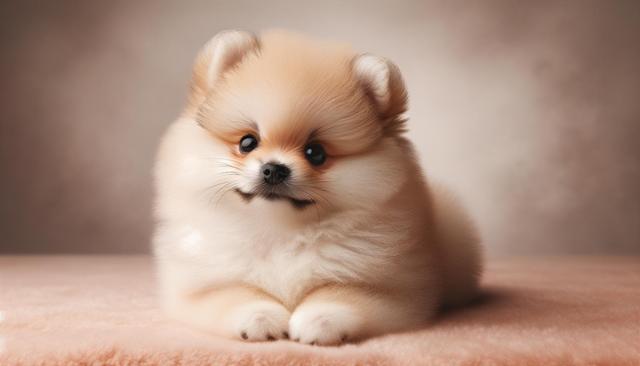Understanding the Pomeranian Breed
Pomeranians are part of the toy dog group and originated from the larger Spitz breeds of the Arctic region. Despite their small size, they have a bold, energetic demeanor that often surprises those unfamiliar with the breed. Typically weighing between 3 to 7 pounds when fully grown, Pomeranians carry themselves with a sense of pride and alertness that makes them stand out.
They are known for their thick double coat, which comes in a variety of colors including orange, black, cream, and sable. This luxurious coat requires regular grooming to keep it in good condition. Their fox-like face, pointed ears, and expressive eyes give Pomeranians a distinctive and charming appearance. However, owning a Pomeranian also means managing their temperament, which can be both endearing and challenging.
Personality Traits and Behavior
Despite their petite size, Pomeranian puppies often act like they’re much larger than they are. They are curious, lively, and intelligent, which makes them a joy to be around but also means they need mental stimulation and consistent training. Without proper guidance, they can become overly vocal or develop small dog syndrome—where they behave aggressively or bossily due to lack of boundaries.
Pomeranians are loyal and often form strong bonds with their owners. They can be wary of strangers and sometimes act as tiny watchdogs, alerting their families to any unusual activity. These traits make training and early socialization very important. Key characteristics of the breed include:
- Alertness and high energy levels
- Sociable with proper socialization
- Strong attachment to their owners
- Occasional stubbornness during training
Training and Socialization Tips
Training a Pomeranian puppy should begin as early as possible. Due to their intelligence and eagerness to please, they often respond well to positive reinforcement methods such as treats, praise, and play. However, consistency is key, as they can quickly pick up undesirable habits if not corrected early on.
Socialization is equally important. Exposing your puppy to different environments, people, and other pets helps prevent behavioral issues later on. Puppy classes can be valuable for both training and social interaction. When training your Pomeranian, consider the following:
- Use short, engaging sessions to match their attention span
- Reward good behavior immediately
- Avoid harsh discipline, as it can lead to fearfulness
- Teach basic commands and gradually increase complexity
Housebreaking can take time, but crate training often helps. Establishing routines and frequent potty breaks supports successful training outcomes.
Grooming and Health Considerations
Pomeranians require regular grooming to maintain their coat and overall health. Their thick double coat sheds moderately year-round and more heavily during seasonal changes. Brushing several times a week helps prevent tangles and mats, especially around the neck and behind the ears.
In addition to coat care, Pomeranians benefit from routine dental hygiene, nail trimming, and ear cleaning. Due to their small mouths, they are prone to dental issues, so brushing their teeth regularly can prevent plaque buildup and gum disease. Common health concerns in Pomeranians include:
- Dental problems
- Luxating patella (dislocated kneecap)
- Tracheal collapse
- Hypothyroidism
- Heart conditions
Regular vet checkups and a balanced diet tailored to small breeds can support long-term wellness. Choosing a reputable breeder who screens for genetic conditions is also crucial when selecting a Pomeranian puppy.
Daily Life with a Pomeranian Puppy
Living with a Pomeranian puppy is a lively and engaging experience. They thrive in environments where they receive plenty of attention and mental stimulation. While they are adaptable to apartment living due to their size, they still need daily exercise and play to burn off energy and stay healthy.
A typical day for a Pomeranian may include short walks, interactive games, training sessions, and cuddle time. They enjoy being involved in family activities but also appreciate having a quiet space to rest. When planning your home for a Pomeranian puppy, consider:
- Providing toys for mental and physical stimulation
- Creating a safe space for alone time
- Supervising interactions with young children due to the dog’s small size
- Monitoring for signs of separation anxiety
Though small in stature, Pomeranians have big personalities and require thoughtful care and attention. Their loyalty and affectionate nature make them cherished companions for those prepared to meet their needs.




Leave a Reply